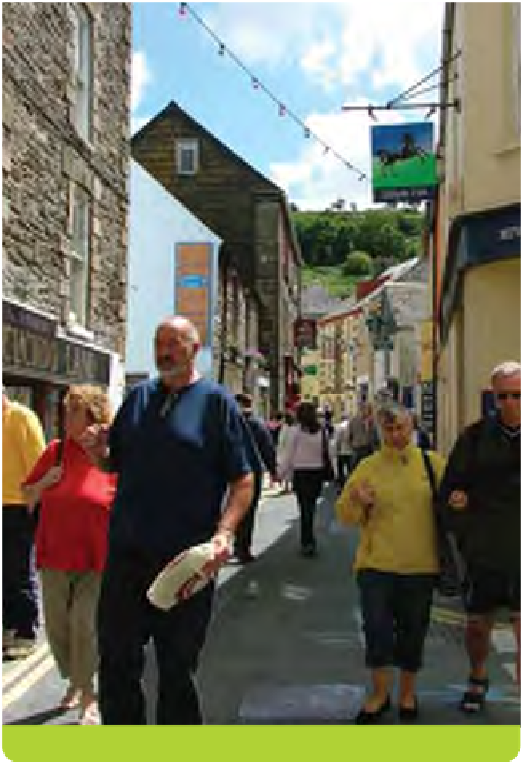Travel Reference
In-Depth Information
Negative socio-cultural impacts
•
Staged authenticity - the staging of events specifi cally
for tourists can sometimes lack authenticity and
demean cultural traditions that have lasted for
centuries, e.g. traditional dance and music.
Some of the most common negative socio-cultural
effects of tourism development include:
•
Crime - mass tourism often increases the likelihood
of criminal activities in destination areas, including
prostitution, illegal gambling, robbery and public
disturbances. Many of these would occur anyway,
but tourism accelerates the problem;
•
Sex tourism - local people in certain parts of
the world are exploited by tourists from wealthy
nations;
•
Confl ict with the host community - tourism
development that is poorly-planned and managed
can give rise to clashes between visitors and the
host community, resulting in antisocial behaviour.
This could occur for a number of reasons, such as
excessive noise and congestion in resorts or local
people resenting the behaviour of tourists. There can
be problems in developing countries when western
tourists come into close contact with people who
have totally different cultures and traditions to their
own. The indigenous peoples, particularly the young,
sometimes try to copy the dress and actions of the
visitors, thereby altering their cultural traditions. This
is known as the 'demonstration effect';
•
Displacement - tourism can sometimes distort
patterns of living and home ownership in
destinations, e.g. in areas that have large numbers
of second homes. Also, local people can be forced
to move from their homes in order to make way
for new tourism developments. This is known as
displacement and is an increasingly common feature
of tourism in developing countries;
Tourist resorts can become congested in peak season
Activity 12.4
Carry out some research into the positive and negative
socio-cultural impacts of tourism development in
your own local area (or a nearby tourist area).
•
Loss of cultural identity - an area's cultural identity
may be diluted or lost altogether as a result of mass
tourism development, e.g. religious codes may be
altered to adapt to the needs of visitors or local
languages may be lost through under-use;
This activity is designed to provide evidence for P1.











































































































































